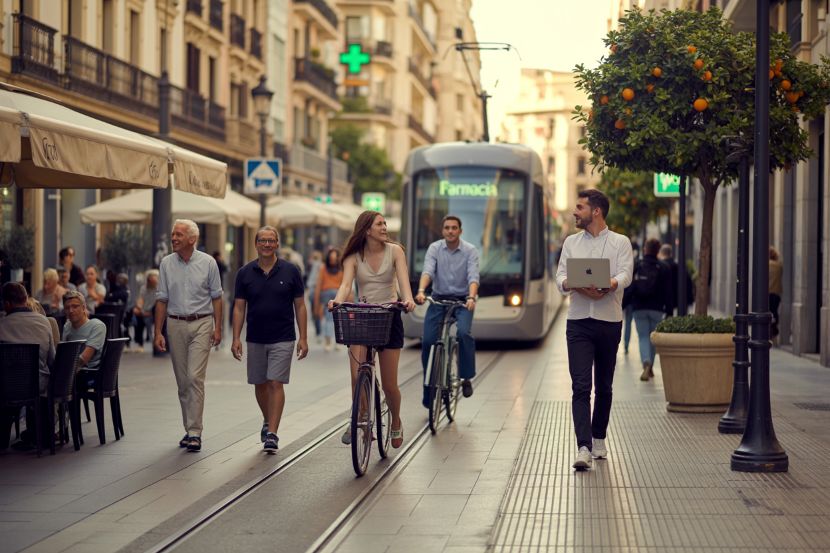Spain Outstands UAE, Austria, Luxembourg, Portugal and More In Quality-of-life, Champion for Expats Again, What Travelers Need To Know
Spain tops expat quality-of-life rankings again. See why it leads, how travel works, safety, healthcare, and smart tips for tourists and business travellers.
Spain, Europe greets long‑stay visitors with a familiar headline this year: expatriates once again call it the best place in the world for quality of life. For travellers weighing a slower season in Madrid, a seaside winter in Málaga, or a remote‑work stint in Valencia, the data behind that accolade translates into everyday comforts — good public services, easy mobility, and a lifestyle where culture and sunshine are part of the routine.
What the ranking shows
InterNations’ Expat Insider 2025 places Spain 1st globally in the Quality of Life Index, continuing an uninterrupted run since 2022. Large shares of respondents reported moving specifically for a better life (20%) or to retire (8%), and overall happiness among expats in Spain stands well above the global average (84% vs 67%). The top‑10 for quality of life in 2025 is: Spain, United Arab Emirates, Panama, Austria, Luxembourg, China, Qatar, Czechia, Japan, Portugal.
Spain ranks strongly across leisure, culture and food, and draws high marks for healthcare affordability, availability and quality. Public transport is rated affordable (9th) and broadly available (14th), and most respondents say it is easy and safe to move around on foot or by bicycle; travel opportunities within the country score highly as well (7th).
Health, climate and day‑to‑day living
Spain’s National Health System (SNS) underpins the positive medical scores; the Ministry of Health highlights universal coverage principles and system indicators for residents and long‑stayers. Travellers and new residents can review official guidance on access and services directly from the Ministry.
For moving between cities, Spain’s official tourism portal points to quick domestic links and clear wayfinding — high‑speed AVE rail, extensive road networks, and short‑haul flights make multi‑city itineraries straightforward. On high‑speed routes, Madrid–Barcelona, Madrid–Seville, and Madrid–Valencia commonly clock in at around or under three hours, supported by national operator Renfe timetables.
Safety and stability: the nuance
While personal safety sentiment is high, Spain places 14th in the Safety & Security subcategory, with strong scores for feeling safe (87%) and freedom of expression (77%), but only average views on political stability (57% positive). For context and local trends, Spain’s Ministry of the Interior publishes the Crime Statistics Portal, including quarterly and annual crime balances that help travellers assess regional conditions.
Impact on business travel and holidaymakers
Business travellers benefit from dense air‑rail connectivity and city‑centre arrivals on AVE services that reduce transfer times. Booking flexible fares, using Renfe’s Combinado Cercanías for last‑mile links, and planning meetings around intra‑day AVE frequencies can raise schedule reliability.
Tourists find that walkable districts, frequent metros, and regional trains lower logistics costs. The official tourism site aggregates practical information (distances, connections, local mobility) that helps visitors stitch together coast‑to‑culture routes without a car.
Considering a longer stay? (visas & remote work)
Non‑EU remote workers can explore Spain’s telework (“digital nomad”) visa, described on official consular and government pages. Requirements typically include proof of remote employment or freelance activity for non‑Spanish clients, qualifications or experience, and sufficient income; the Commerce Ministry and Spanish consulates outline steps and documents.
Step‑by‑step guidelines for travellers and long‑stayers
- Check your purpose of stay: Holiday, study, work or remote‑work residence — confirm the right route via Spanish consulates or the Commerce Ministry portal.
- Sort health cover early: Review how Spain’s SNS works for residents and what private insurance you may need before eligibility kicks in.
- Plan mobility smartly: Compare total door‑to‑door time; AVE often beats flying on sub‑3‑hour corridors. Use Renfe’s timetables and consider Combinado Cercanías for last‑mile travel.
- Check local safety info: For big events or peak seasons, scan the Interior Ministry’s crime portal and follow municipal guidance.
- Pick a base that fits your lifestyle: Madrid and Barcelona for corporate networks and museums; Valencia, Málaga or Cádiz for coastal living and lower housing pressures (season‑dependent). (General travel planning based on official transport resources.)
- Mind practicalities: Register for long stays (NIE/TIE where relevant), and keep official documents and translations ready if applying for residence under the telework route.
Quick tips for tourists
- Book AVE in advance to lock in lower fares; off‑peak trains are quieter and cheaper.
- Stay near transport hubs (Atocha, Sants, María Zambrano) to unlock cheap day trips.
- Walk and cycle in historic centres; InterNations respondents reported Spain is easy and safe for getting around on foot or by bike.
- Use official portals — spain.info for route planning; Ministry of Health for care basics; Interior’s crime portal for safety snapshots.
Key points (at a glance)
- Spain is No.1 for quality of life among expats in 2025; the top ten also includes UAE and Panama.
- Strong scores for healthcare and leisure; public transport widely accessible and affordable.
- Safety sentiment high but political stability perceptions are middling; check official crime dashboards for local trends.
- Remote‑work visas exist for non‑EU nationals, with requirements detailed by Spanish authorities.
The post Spain Outstands UAE, Austria, Luxembourg, Portugal and More In Quality-of-life, Champion for Expats Again, What Travelers Need To Know appeared first on Travel and Tour World


Comments and Responses
Please login. Only community members can comment.